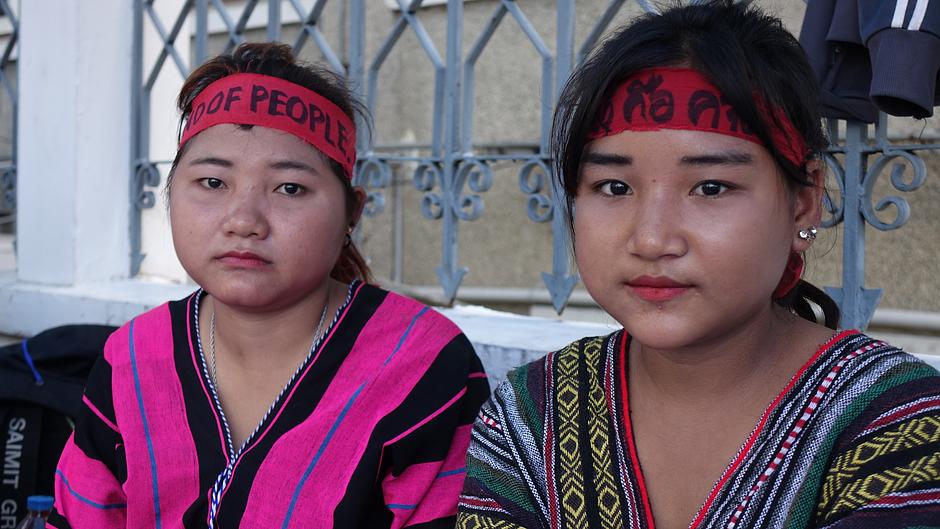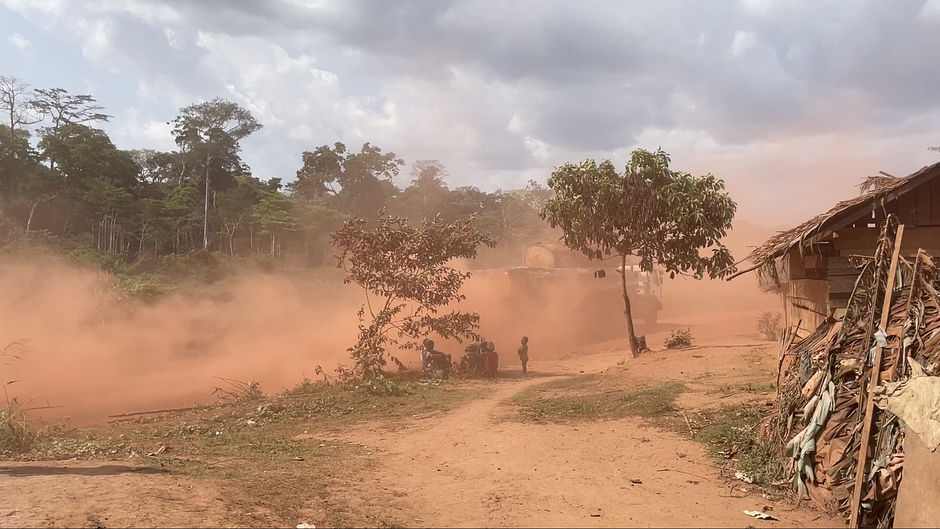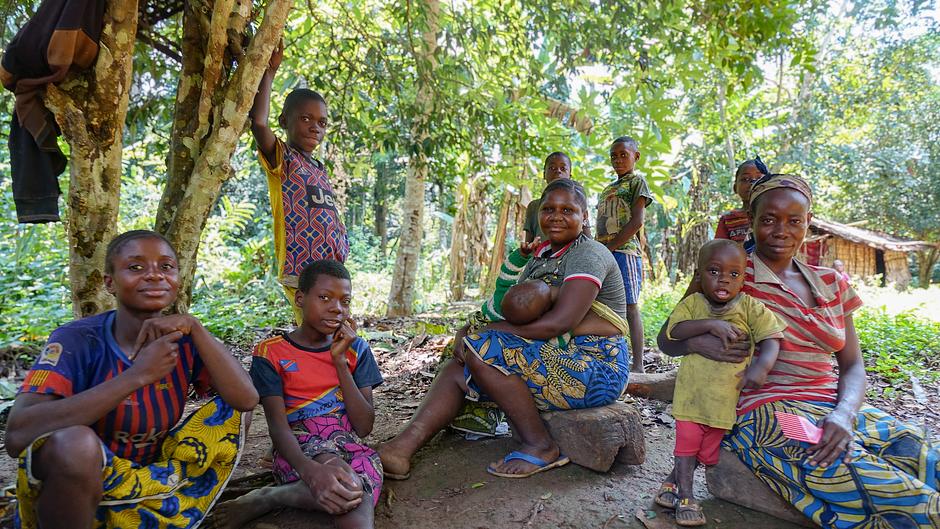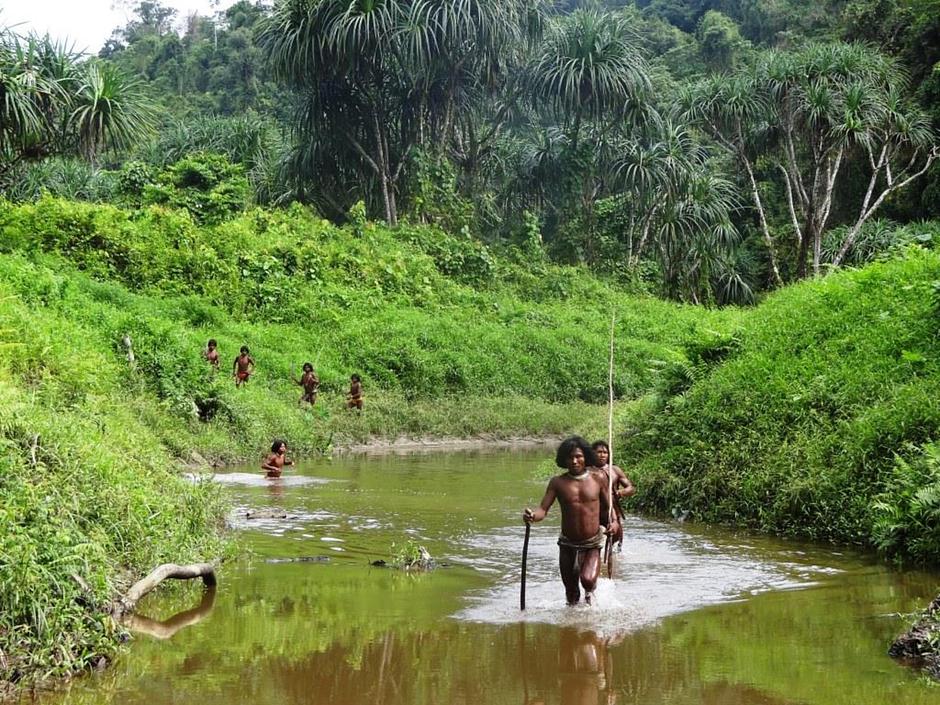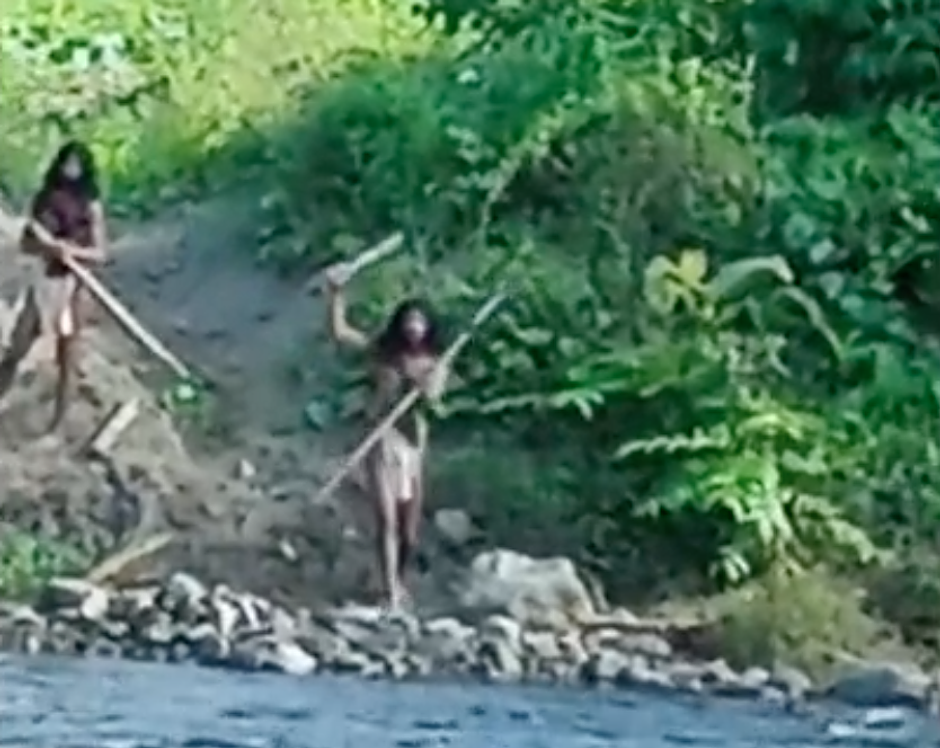FAQ on the Baka, African Parks & Survival’s campaign
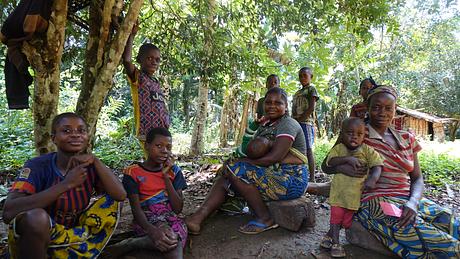
1. Who are the Baka and what is happening to them?
2. How long has Survival been working on conservation / with the Baka / on Odzala-Kokoua?
4. Why isn’t Survival giving African Parks the details they need to stop the abuse?
6. What is the problem with conservation?
8. Does Survival have anything against Prince Harry or the British royal family?
9. Is Survival helping the Mail to attack Prince Harry?
Who are the Baka and what is happening to them?
The Baka are Indigenous hunter gatherers who have lived in, protected and shaped the Congo Basin rainforest for generations. Yet they are facing human rights abuses in the name of conservation.
The creation of so-called Protected Areas on their ancestral lands, from colonial times until today, has brought violence, land theft, dispossession and hunger to the Baka. These include Odzala-Kokoua National Park, managed by African Parks, and Messok Dja, in the process of being created by WWF, both in the Republic of Congo. Once their land is stolen, their sustainable ways of life are criminalized. Park rangers, funded and equipped by big conservation organizations (like WWF and African Parks), subject them to harassment, rape, beatings, torture and even death for simply trying to access their land and provide for their families.
How long has Survival been working with the Baka?
Survival has been investigating the destruction of the Baka and other Congo basin Indigenous peoples in the name of conservation since the 1980s.
Survival has been directly raising concerns with African Parks related to Odzala-Kokoua specifically for more than ten years: we first raised human rights concerns with the manager of the Odzala park in 2013, and then with African Parks’ Odzala ‘community engagement manager’ in 2014. In 2017, we published a 120-page report, “How Will We Survive: The Destruction of Congo Basin Tribes in the Name of Conservation”, where abuses committed by African Parks rangers were reported.
What does Survival think of African Parks’ response to the reports of the human rights abuses in Odzala?
Since Survival first spoke to African Parks about the abuse, African Parks has alternated between silence, denials, attempts to pin the blame on a few “bad apples”, the hiring of a law firm, and attempts to push blame onto Survival by claiming that we need to provide more details about individual victims. This latter argument suggests that African Parks did not know about the abuses, and that Survival has not given them information about them - both of these are false, and have been for at least ten years.
These are exactly the same tactics that we have seen when confronting other conservation organizations, like WWF, that have been conclusively shown to be responsible for human rights abuses - and none of them tackle the real problem.
What we have not seen are shock and surprise over what Survival and journalists have documented, apologies for the crimes they fund, an end to abuse, and the action needed to stop it: respect for the Baka’s rights, including their land rights over their ancestral forest.
Why isn’t Survival giving African Parks the details they need to stop the abuse?
African Parks accusing Survival of not cooperating with them implies a) they didn’t know about the abuses, and b) we haven’t given them the information about it. This is wrong on both counts.
They know all about the abuses, because we told them in 2013; we told them again in 2014; we published a report in 2017; in 2020 a top US official reported on it – and because everyone who spends even a few days in a Baka village hears account after account.
Survival first spoke to African Parks about their park rangers violently abusing Baka Indigenous people around Odzala-Kokoua National Park more than 10 years ago – and it is likely they have known about it for even longer. It is not a secret; anyone who travels to any of the Baka villages around the park, as Survival and journalists have, will meet many people who have suffered terribly at the hands of African Parks’ guards. Yet, for years, African Parks have replied – as they are now saying to Survival supporters – that if only Survival would hand over more details of the victims who have spoken to us in confidence, then African Parks would do something about it.
This is both false, and a shameless attempt to evade responsibility.
Victims are understandably deeply scared about their details being shared - the husband of a woman who was raped by African Parks guards told Survival researchers that when he complained to the park authorities, he was held captive and beaten for nine hours.
And it is not needed. African Parks admitted to Survival as long ago as 2014 that they knew about the abuse, and have even admitted to knowing details of specific cases we have raised. They have immense resources to find out what they need to know - and the responsibility to do so, as managers of the park and employers of the rangers. They already know enough, and have known it for long enough, to make clear that these are not isolated incidents, but a systemic problem for which they bear responsibility.
And still, they have not done what is needed to stop it. Some individual guards have been disciplined, or fired, and African Parks - as WWF did before in a similar situation - has hired a law firm. Meanwhile, they instruct their military-trained guards to keep the Baka out of their own ancestral forest - and they do so at any cost. And, for years, guards keep on and on attacking Baka, while the Baka camp by the side of the road, desperate to return to their land, to provide for themselves and their families and to protect their forest.
After more than ten years, African Parks’ protestations – that they, a multi-million-dollar celebrity-backed conservation organization, are not responsible for the situation they have created or the guards they employ, that it is instead the fault of individual guards, or of Survival, or of anyone exposing the abuse – ring hollow.
What happened with WWF?
When Survival began campaigning against WWF over conservation-related abuse, including of the Baka in Messok Dja in the Republic of Congo, they attacked, denied, tried to pass on the blame, and claimed innocence with the support of their law firm. But Survival’s campaign ensured that their responsibility for appalling conservation-related abuse of the Baka was laid bare in media reports, a UN investigation, and an excoriating US Congressional hearing.
An outcry by Survival supporters ensured that violence against Indigenous people by WWF-funded rangers has, eventually, become less widespread, at least in some areas - but in the absence of real change and a willingness to do things differently, Indigenous peoples whose forest has been taken for WWF-supported parks are still deprived of their lands, their rights, their ability to provide for themselves and their families, and are traumatized by years of violence.
What is the problem with conservation?
The scientific evidence proves overwhelmingly that Indigenous people, like the Baka in the Congo basin, care for and manage their environment better than anyone else. This is why 80% of Earth’s biodiversity is in Indigenous territories. And when Indigenous peoples have secure rights over their land, they achieve far better conservation results at a fraction of the cost of conventional “conservation” programs.
And yet, particularly in Africa and Asia, governments and NGOs are stealing vast areas of land from Indigenous peoples and local communities under the false claim that this is necessary for conservation.
They then call the stolen land a “Protected Area” or “National Park” and keep out the original inhabitants, sometimes with a shocking level of violence. While logging, mining, tourism and other industries are welcomed in, the park rangers burn down local people’s homes, steal goods and vandalise property, and beat, torture, rape and kill local people with impunity.
This may sound unbelievable, but, over recent decades, Survival has gathered huge quantities of testimonies of Indigenous people who have suffered such atrocities at the hands of guards trained, paid for, and managed by globally-renowned conservation organisations like the World Wide Fund for Nature (WWF), the Wildlife Conservation Society (WCS) and - as with the Baka in Odzala-Kokoua National Park in the Republic of Congo - African Parks. These atrocities have been further documented by other non-profits, by journalists, UN investigations, and a US Congressional hearing.
It is time for the conservation industry to face up to the abuse that their model of conservation is causing, and to make a fundamental change. Indigenous land rights must be respected: this is the only way to protect the environment, respect international law, and stop the abuse for good.
What needs to happen?
Funders must stop funding fortress conservation, a model of conservation that violently excludes Indigenous peoples from their land. The Baka are the best guardians of their forest, and it is theirs by right.
Governments must recognize, respect and protect Indigenous land ownership rights.
Conservation organizations must stop evicting and attacking Indigenous people and violating their human rights.
Prince Harry must step down as a member of the Board of Directors of African Parks, distancing himself from an organization that is complicit in evictions and heinous abuse of Indigenous people.
Does Survival have anything against Prince Harry or the British royal family?
Survival has no position on Prince Harry or the British royal family in general. Survival’s mission is to campaign with Indigenous and tribal peoples around the world to help them defend their lives, protect their lands, and determine their own futures. This includes campaigning against conservation-related abuses of Indigenous peoples, in the Congo basin and elsewhere.
Prince Harry is relevant to this simply because he is a member of the Board of Directors of African Parks, a position to which he was “elevated” in 2023, after having served as their President since 2017. Survival is currently campaigning against abuses of Baka Indigenous people at Odzala-Kokoua National Park in the Republic of Congo, managed by African Parks. Prince Harry’s role gives considerable responsibility and control over the organization’s work. Survival International wrote to him about the abuses in May 2023, and now we are calling on him to resign from African Parks’ Board of Directors.
As a campaigner for racial justice and for the environment, Prince Harry must distance himself from an organization that has been so horribly complicit in appalling abuse of the best guardians of the forest. Doing so would send a powerful message that would lead to real change.
African Parks, along with other big conservation organizations like WWF, takes Indigenous land to turn it into militarized parks or reserves - and then their guards attack Indigenous people like the Baka just for trying to live their lives on their land. Prince Harry can help stop this violent injustice by taking a stand against African Parks and fortress conservation right now. As someone who has taken a high-profile stand against racism, his actions could help bring real change for the Baka and other Indigenous peoples suffering conservation-related abuse.
Is Survival helping the Mail to attack Prince Harry?
Survival has been investigating the destruction of the Baka and other Congo Basin Indigenous peoples in the name of conservation since the 1980s, and has been directly raising concerns with African Parks about Odzala park for more than ten years. We most recently wrote to Prince Harry and to African Parks managers about human rights abuses in Odzala in 2023, after our researchers visited the area again and heard many testimonies of continuing abuse.
The Baka have asked us directly to tell the world about their concerns, and to use what pressure we can to help put a stop to it. After trying private communications, Survival is speaking out publicly. Survival will speak to any journalists who take this abuse seriously, and are committed to investigating and exposing it. The Mail on Sunday and Ian Birrell have carried out a detailed and important investigation, which included many interviews with Baka people who have been victims of African Parks’ guards.
Survival was founded in 1969 after a newspaper investigation (in the UK’s Sunday Times) revealed horrific human rights violations against Indigenous people in Brazil. We will continue to work with journalists to help bring the testimonies and the voices of Indigenous people to the global public, for as long as abuses of their rights continue.


